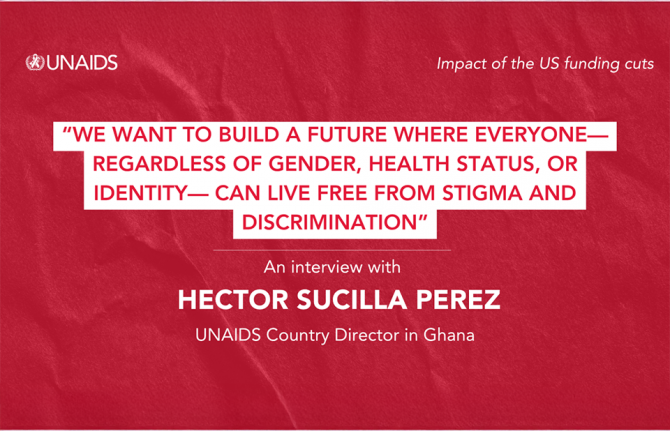unaids.org
UNAIDS




Feature Story
Impact of US funding cuts on HIV programmes in Kenya
04 April 2025
04 April 2025 04 April 2025Immediate risks and disruptionsAccess to Kenya electronic medical records system: There are media re...
Immediate risks and disruptions
- Access to Kenya electronic medical records system: There are media reports indicating that aggregate health data are not accessible through the Kenya health information system (DHIS2).
- Commodity availability: Short-term commodity availability has improved, with HIV commodities now being available at facilities. However, human resources for health remains impacted.
- Service impact: Services for HIV, TB, malaria, immunization, nutrition, and family planning programmes are still affected. HIV prevention programmes have been paused or scaled down.
Politically relevant updates
- Impact of US Government funding cuts: The Kenyan Government released a comprehensive report on 24 March detailing the impact of the US Government funding cuts. Key recommendations include:
- Immediate actions:
- Establish an emergency health contingency fund.
- Mobilize domestic resources and reallocate the national budget.
- Begin high-level diplomatic negotiations with the United States.
- Medium-to-long-term actions:
- Strengthen public-private partnerships.
- Expand universal health coverage and implement health insurance reforms.
- Develop local pharmaceutical manufacturing.
- Set up a donor coordination platform with real-time monitoring and mapping.
- Create a structured contractual and legal framework to ensure resilience.
- Immediate actions:
- Government convening and mitigation measures: The National AIDS & STI Control Programme and the National Syndemic Diseases Control Council are planning to take an in-depth account of the situation at the county level on HIV treatment for adults and children.
Impact highlights
- Civil society impact: Kenyan civil societies, led by the Kenya Legal and Ethical Issues Network, have demanded clarification from the Office of Data Protection Commission on measures taken to safeguard health data and ensure compliance with relevant data protection laws.
- Community-led initiatives: ISHTAR, a key populations-led organization, received funding from other donors to continue with community-led monitoring work until the end of March.
- UN response: The UNAIDS country office, in partnership with the National AIDS & STI Control Programme and the National Syndemic Diseases Control Council is developing a proposal to mobilize resources from the China International Development Cooperation Agency for HIV and other sexually transmitted infections prevention activities.
Documented impact on services
All facilities/service points providing antiretroviral treatment are working at a reduced capacity. The UNAIDS country office has received reports from the field that HIV commodities are now available at the facilities. The country has currently adequate HIV commodities and those that were running low at health facility level were flagged on 14 March 2025 by the Cabinet Secretary Ministry of Health for distribution by the US supported procurement agency. No stockouts are foreseen in the next 3-6 months. However, human resources for health remains impacted.



